The call for applications for this year’s ESRC Festival of Social Science is now open – deadline Fri 29 April.

What is the ESRC Festival of Social Science?
The ESRC Festival of Social Science is an annual, UK-wide, free celebration of the social sciences, planned to take place from 22 October – 13 November 2022. BU have been involved in the festival for over a decade, running our own internal selection process and delivering up to ten activities per year.
The festival aims to encourage, support and create opportunities for social science researchers to engage with non-academic audiences.
Why should I take part?
The festival is a prestigious initiative by a major research funder, and BU’s continued involvement is justified by the quality of our events and activities. Being part of this festival is an achievement worth citing and celebrating. 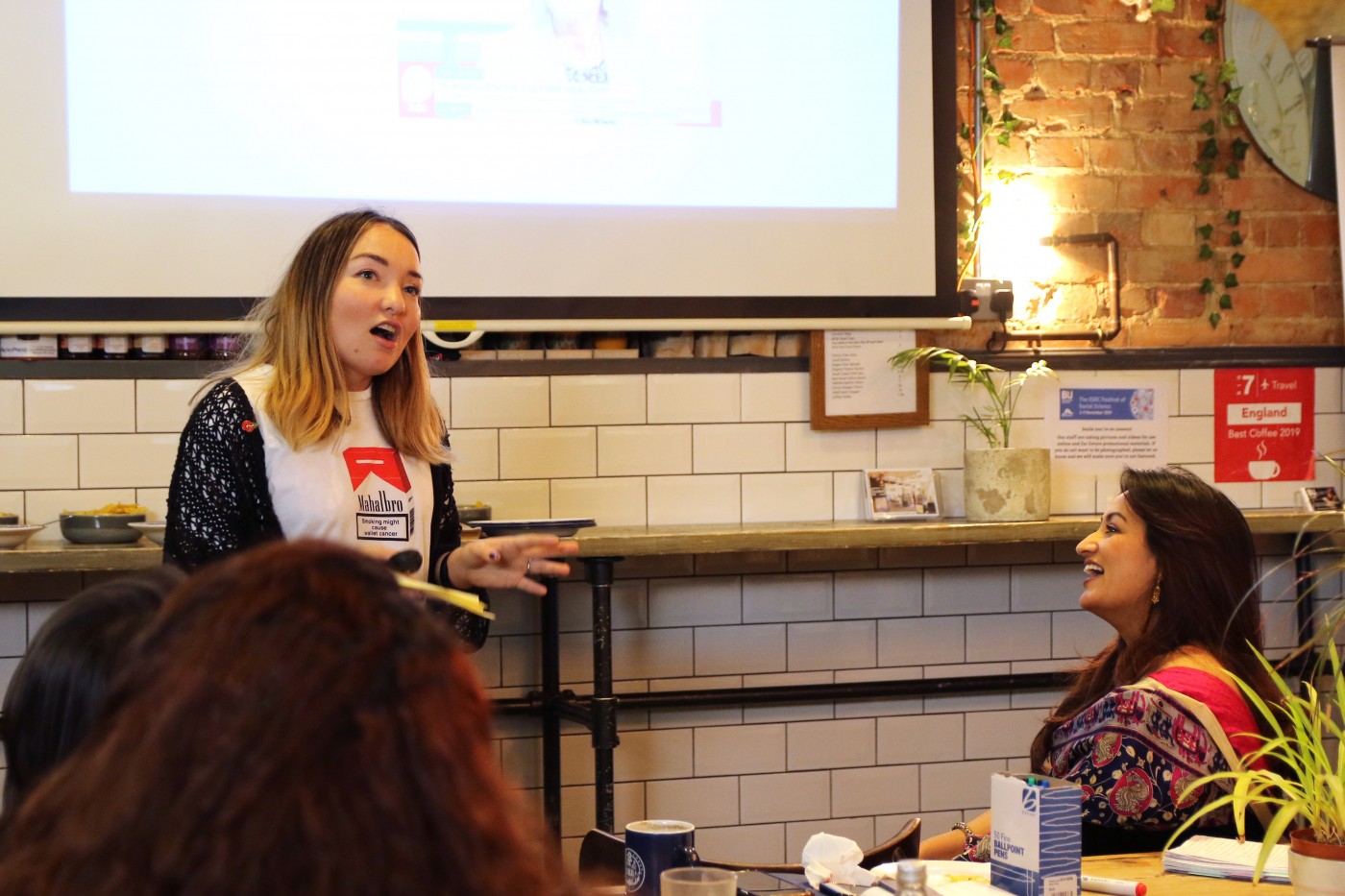
It is an excellent opportunity to engage people outside of academia with your research and with the benefit of co-ordinated support and promotion from RDS and the ESRC.
You can apply for up to £1000 to deliver your project.
Are there rules about topics, or target audiences?
The theme set by the ESRC for this year’s festival is ‘my local area’. The ESRC want to see at least a quarter of festival events on this theme.
Although encouraged, adhering to this theme is not essential for your proposal. Other social science themes are still welcome.
The ESRC expect to see the majority (>80%) of events targeted at ‘general public’ and youth audiences. This means people attending out of a personal interest in the topic, rather than in a professional capacity.
There is scope for a small minority (<20%) of activities targeting professional stakeholder audiences, for example, people whose work uses your research. Bearing in mind the limited capacity and higher competition for such proposals aimed at professional audiences, your application would need to be outstanding to merit inclusion.
What if I’ve never done any public engagement before?
Everyone has to start somewhere, and this is the ideal place. You’ll have access to comprehensive support, advice and training throughout. If you’re unsure, seek out a more experienced colleague to collaborate with.
Can I apply if I’m not a social scientist?
The ESRC says that events must “feature social science (ideally with a social scientist involved in the event)”. If this doesn’t clearly apply to you, consider these options;
- Does your research have clear implications for society that could be explored from a social science perspective?
- Could you collaborate with a social scientist, combining your resources and creativity to explore the impact of your research? If you’re looking for a collaborator, the Research Blog or BU website are great places to start or contact us for help.
What will I be expected to do?
You’ll be expected to;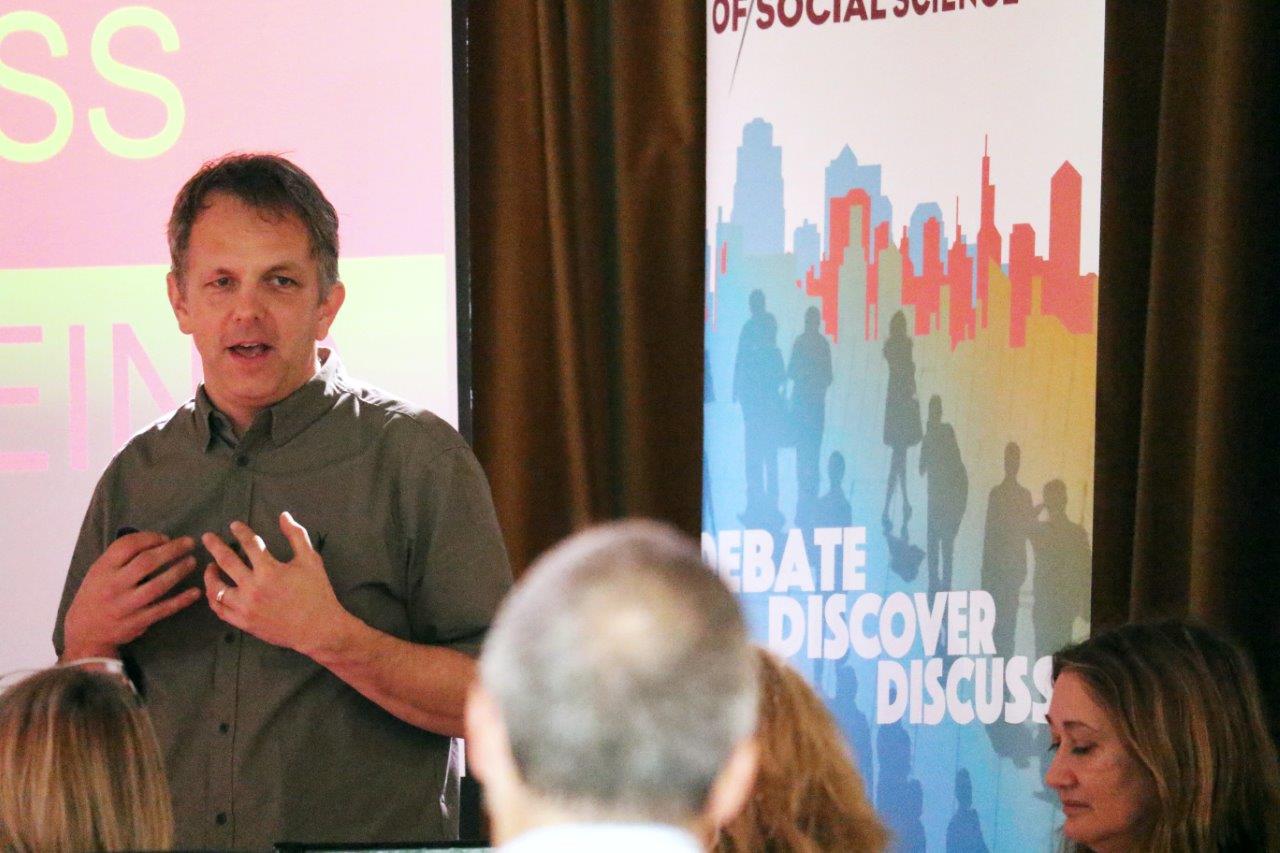
- Familiarise yourself with best practice for public engagement with research. Whether you’re new to this or experienced, there’s always room to improve.
- Apply to our internal panel
- If successful, attend an initial training session to start out right
- Plan, deliver and evaluate your activity or event, working with the public engagement team to shape your project into an impactful, professional and fascinating experience.
What support will I get?
Being part of this festival means a higher level of support and reach than we are normally able to provide.
Before applying, you’ll have access to:
- A dedicated session of the Public Engagement with Research (PER) Network, featuring previous event holders.
- Bookable one-on-one advice slots with BU’s Engagement Officer.
- Detailed applicant guidance to help you apply.
When your application is successful, you’ll get:
- A half-day training session from an expert external public engagement trainer
- Continuing advice and support from BU’s public engagement team on all areas of planning, promoting delivering, evaluating your activity.
- The promotional boost from being part of a huge national festival.
What next?
If you’re interested in applying, here’s what to do next;
- Explore previous events from BU and examples from around the country.
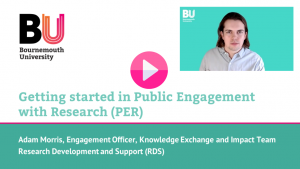
- Start brushing up on how to make public engagement work for you and your audience. A great place to start is BU’s own video guide to getting started in public engagement with research (Brightspace). You can also browse guidance and case studies from the National Co-ordinating Centre for Public Engagement (NCCPE).
- Book an advice slot.
How to apply
- After following the previous steps, read the application guidance to support you in completing an effective application.
- Submit your application using the online form. You can save your progress and return later, though it’s advisable to keep a backup elsewhere. There is a pdf version of the whole form for drafting purposes only.
We’ll provide more information on applying to the ESRC Festival of Social Science on this blog and the PER Network over the coming weeks. If you have a question in the meantime, please email the team.
 On 15 March, 2022 science minister George Freeman extended the guarantee to awards that are expected to be signed by the end of December 2022, while efforts continued to associate to the programme. The announcement comes after yesterday’s news that the business department has allocated £6.8 billion for EU programmes during 2022-2025, supporting the UK’s eventual association with Horizon Europe, Euratom Research and Training, and Fusion for Energy.
On 15 March, 2022 science minister George Freeman extended the guarantee to awards that are expected to be signed by the end of December 2022, while efforts continued to associate to the programme. The announcement comes after yesterday’s news that the business department has allocated £6.8 billion for EU programmes during 2022-2025, supporting the UK’s eventual association with Horizon Europe, Euratom Research and Training, and Fusion for Energy.


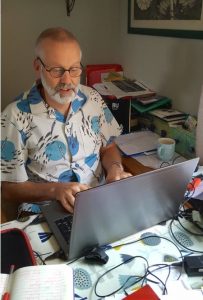 In academic life rejection is the norm, for both journal articles and grant applications, the average academic is more likely to fail than to succeed at any time. This can also be true, although to a lesser extent, for applications to present at academic conferences. At the time of writing this blog (12 February 2022), I have 299 published papers listed on the databases SCOPUS. Of these nearly 300 papers only two papers ever were accepted on first submission as submitted. Most papers went through one or two rounds revision in the light of comments and critique offered by reviewers, and sometimes also additional feedback from the journal’s editor.
In academic life rejection is the norm, for both journal articles and grant applications, the average academic is more likely to fail than to succeed at any time. This can also be true, although to a lesser extent, for applications to present at academic conferences. At the time of writing this blog (12 February 2022), I have 299 published papers listed on the databases SCOPUS. Of these nearly 300 papers only two papers ever were accepted on first submission as submitted. Most papers went through one or two rounds revision in the light of comments and critique offered by reviewers, and sometimes also additional feedback from the journal’s editor.


 Apply now for outreach grants of up to £2,000 from the
Apply now for outreach grants of up to £2,000 from the 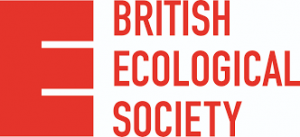















 REF Code of Practice consultation is open!
REF Code of Practice consultation is open! BU Leads AI-Driven Work Package in EU Horizon SUSHEAS Project
BU Leads AI-Driven Work Package in EU Horizon SUSHEAS Project Evidence Synthesis Centre open at Kathmandu University
Evidence Synthesis Centre open at Kathmandu University Expand Your Impact: Collaboration and Networking Workshops for Researchers
Expand Your Impact: Collaboration and Networking Workshops for Researchers ECR Funding Open Call: Research Culture & Community Grant – Apply now
ECR Funding Open Call: Research Culture & Community Grant – Apply now ECR Funding Open Call: Research Culture & Community Grant – Application Deadline Friday 12 December
ECR Funding Open Call: Research Culture & Community Grant – Application Deadline Friday 12 December MSCA Postdoctoral Fellowships 2025 Call
MSCA Postdoctoral Fellowships 2025 Call ERC Advanced Grant 2025 Webinar
ERC Advanced Grant 2025 Webinar Update on UKRO services
Update on UKRO services European research project exploring use of ‘virtual twins’ to better manage metabolic associated fatty liver disease
European research project exploring use of ‘virtual twins’ to better manage metabolic associated fatty liver disease